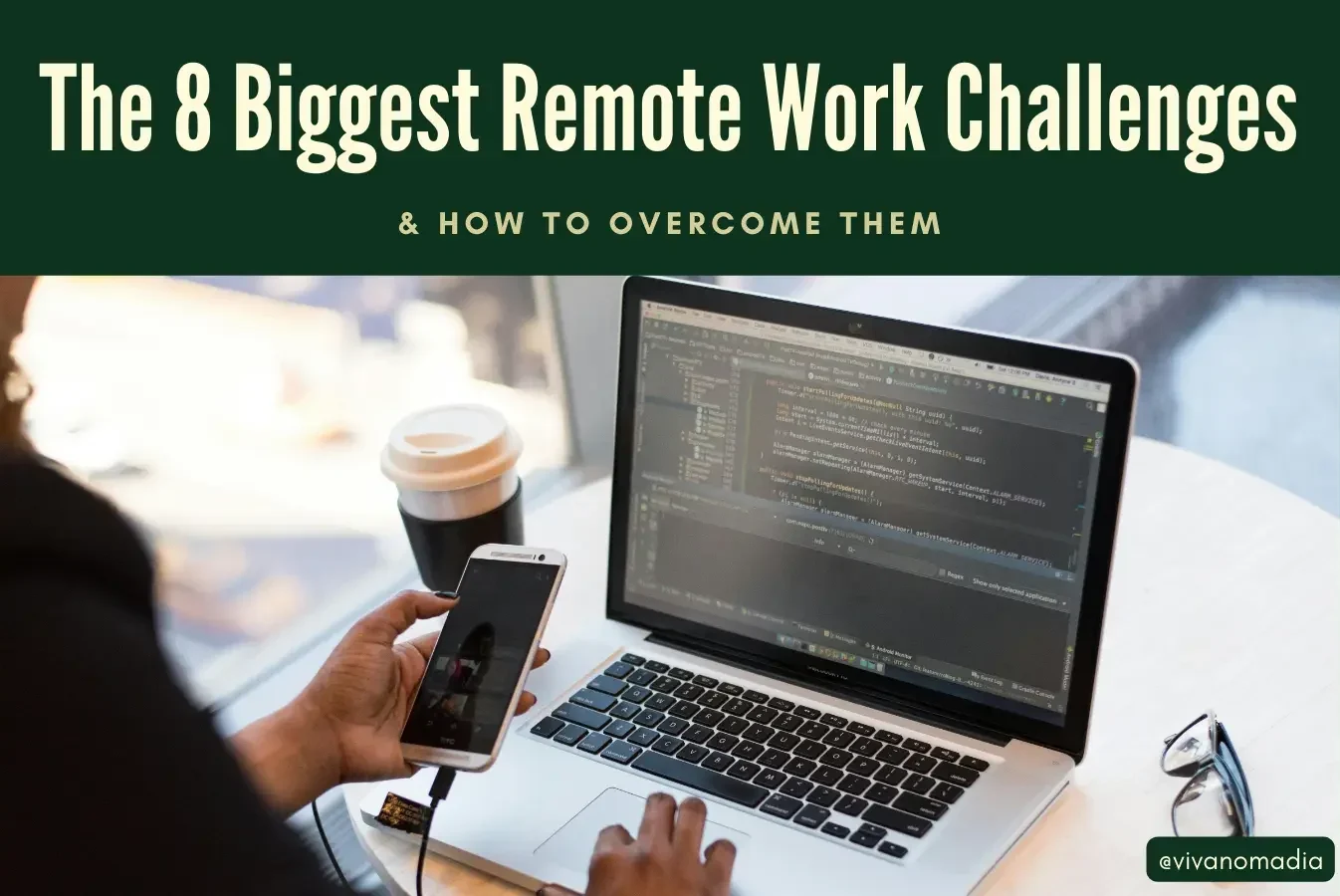- Last Updated: April 24, 2025
SEO plays a significant role in ranking contents higher on websites, increasing visibility, and generating more traffic. It is crucial for businesses or companies to enhance their online presence, attract more people, and earn more profit.
After the pandemic, the remote work culture has seen a boom, and more and more companies and businesses are coming online to sell and promote their products to a wider audience in a more effective and convenient way.
Table of Contents
ToggleSEO stands for Search Engine Optimization. It is a sub-skill of digital marketing. It is a marketing tactic widely used for promoting companies’ services to potential customers. When you search for something on Google, it plays a crucial role in increasing the visibility and ranking of websites so that they appear prominently in search results and attract more organic traffic.
Multiple reports indicate the rapid growth of this industry, projecting a 17.68% increase by 2030, which is good news for anyone who wants to become an SEO specialist.
What is an SEO Specialist?
An SEO specialist is a digital marketing professional who optimizes websites to improve their visibility and ranking on search engine results pages (SERPs). SEO experts use various techniques like keyword research, on-page optimization, technical audits, and link building to help websites attract organic traffic, increase domain authority, and improve ranking.
As an SEO specialist, you will primarily SEO the article or any other site and use the keyword in such a way that if your keyword is in the article, it helps to bring it in front of the Google search visitors.

What does an SEO Specialist do?
An SEO specialist has to do a wide range of tasks to improve a website’s performance in search results. Here’s a breakdown of their key responsibilities:
Keyword Research
The initial task for an SEO specialist is to find some relevant and high-traffic keywords that will help the article rank higher. This is not a very easy task, as high-traffic keywords create more competition. So, you have to go through in-depth research to find the keywords.
You have to look for keywords that have lower keyword difficulty but attract more traffic or have a higher volume. Also, the selected keywords have to be a mixture of long-tail and short-tail keywords. There are websites like Ahrefs, Semrush that will help you a lot in finding the best keywords. Besides, you can also get ideas from the relevant articles that have already been published.
On-Page SEO
While or after writing the article, you can work on some factors that will enhance the SEO score. These factors include meta tags, proper title, URLs, content size, images, and so on. Remember, the factors need to be optimized for targeted keywords.
On-page optimization is basically done to help search engine bots or crawlers better understand the content of a site and make it suitable for the user or reader. It helps in reducing user experience on the website, from keyword stuffing, CTR, loading speed, bounce rate, etc.
Technical SEO
While on-page SEO is focused on content, technical SEO is focused on performance. Technical SEO deals with things like page speed and site speed, site structure, fixing broken links, duplicate content, crawling, and indexing.
Site Audit
A site audit is the process of evaluating how effectively your website is optimized for search engines. It’s a method that gives an idea of the current state of the SEO of the website and what actions can be taken to increase its ranking and traffic.
There are two methods of website auditing: one is to do the audit manually by following the SEO audit checklist, and the other is to do the audit using any SEO tool.
Link Building/ Backlinks
One key factor in ranking your article is to gain higher domain authority. How well any website can rank on search engine result pages (SERPs) can be estimated through the Domain Authority (DA) Score. Gaining high-quality backlinks (links from other websites pointing to your website) from reputable websites will increase domain authority.
Link building is the practice of building backlinks to gain credibility for your website through recommendations from other reputable sources. To increase link building, there are various strategies, including creating valuable content, outreach, guest posting, and building relationships with other websites.

Analytics and Reporting
It is necessary to go through analysis to maintain a clear strategy and show the desired result. Using tools like Google Analytics and Search Console plays a great role in this case. To build a clear strategy, an SEO specialist has to track website performance, keyword ranking, and provide insights.
Why become a Remote SEO Specialist?
The digital landscape is growing rapidly, so there is a demand for skilled SEO specialists. Here’s why becoming a remote SEO specialist can be a great choice for you:
High Demand
Every day, more businesses and companies are moving online and want to stand out among their competitors and scale their services. So, higher demand has been seen for skilled SEO specialists. Through developing effective SEO strategies with the use of SEO tools like Google Analytics and Search Console, an SEO specialist can boost a website’s visibility on Google, leading to significant benefits for the company.
Location Independence
SEO is completely remote skill, which allows you to work from anywhere in the world. You just need a laptop, good internet connection, and the required marketing or SEO skills. That’s why, being an SEO specialist is one of the top choices for digital nomads.
Flexible Schedule
SEO skills allow you to have a flexible routine. You can set your own hours according to your lifestyle. This flexible career allows you to enjoy a lifestyle with better work-life balance.
Continuous Learning
The constantly changing search engine algorithms require SEO professionals to continuously learn and adapt, which makes this career an intellectually stimulating one. If you like to learn new things often, this career can be a great choice for you.
SEO is a career that has longevity and growth potential. As long as search engines exist, the need for SEO experts will remain strong. Moreover, it offers competitive salaries, freelance work possibilities, and opportunities to work in different industries.
You may also like this- 10 Benefits of Remote Work for Employees (With Challanges)
What skills are required to become an SEO Specialist?
To excel as an SEO specialist, you need a mix of analytical, technical, and creative skills. Here’s a breakdown:
Analytical Skills: As an SEO expert, you need to analyze data, identify trends, and make effective decisions based on data. You have to build up skills in keyword research and seek relevant and effective keywords that will help rank your website. Also, it is necessary to analyze competitors and understand their strategies to make your own strategy more effective.
Technical Skills: Technical SEO is an integral part of SEO. Having a good grasp on technical SEO skills such as page speed and site speed, site structure, fixing broken links, site migration, crawling, and indexing is necessary to rank. Also, a basic understanding of HTML, CSS, JavaScript, and other web technologies will definitely help you in the long run.
SEO tools: A good understanding of tools like Google Analytics, Ahrefs, SEMrush, Search Console, PageSpeed Insights, and other SEO tools is crucial to building a smooth career as an SEO specialist.
Creative Skills: Writing strong and SEO optimized articles is a crucial skill, that will help you succeed in this career path. This is also connected to on-page SEO, as it requires having proper titles, meta tags, keyword density, content length, images, and other necessary factors that help contents rank.
Also, you need to put proper thought into effective link building to acquire high-quality backlinks..
Adaptability: As previously mentioned, SEO is a dynamic and ever-evolving skill. There are also many other SEO specialists who want to rank their websites. So, depending on one SEO strategy might not always work. Besides, new AI and other SEO technologies are developing.
So, you have to have the ability to adapt new technologies and build new and fruitful strategies according to the latest SEO trends and algorithms to succeed in this field.
Use of SEO tools and Softwares
To make an SEO strategy more effective, an SEO specialist requires access to the right tools and software. These tools are necessary for analyzing website performance, identifying issues, optimizing strategies, and automating repetitive tasks. All of these contribute to improving search rankings and online visibility. Here are some popular SEO tools and softwares-
Google Analytics: Free SEO tool that helps track website traffic, pageviews, user engagement rate, and session duration. Analytics conversions measure the interactions that are most important to your business.
Google Search Console: It is used to keep track of the most popular pages and how people found them from actual searches. You can check out impressions, clicks, average CTR, and average position of the queries.
SEMrush: One of the most famous SEO tools among SEO specialists. This tool works best for SEO rank tracking. Apart from that, you can customize the dashboard, create projects, and perform site audits. SEMrush has almost every function an SEO specialist requires for running a successful SEO campaign.
Though SEMrush comes with premium pricing, it really is worth the investment.
Ahrefs: Another SEO tool that works best for competitor research. It is also very similar to SEMrush, but less expensive. Here you can analyze webpages or domains, work on site audits, traffic value metrics, and ranking statistics for given keywords.
What really sets Ahrefs apart is its backlink authority checker and backlink analysis. It’s fairly easy to use compared to most of the other SEO tools.
Yoast SEO or Rankmath SEO: These are WordPress plugins used for on-page optimization. Each of them comes with a free and premium pricing model, but it works more or less the same to improve the on-page SEO score.

PageSpeed Insights: To find out how visitors experience your site, PageSpeed Insights plays a great role. You can monitor the time it takes for a page to load, how stable the elements on the page are, and how long people have to wait after the page loads before they can click something. Here, you can diagnose performance issues without any cost.
SEOptimer: For SEO audits, this is hands down, the best tool on the market. It provides a wide range of tools for testing specific SEO elements, detailed reports, and actionable recommendations to improve search engine rankings.
AnswerThePublic: Another keyword research tool, that works differently than the rest of the others. It offers a visual map of related questions, prepositions, and comparisons with an instant overview of volume and CPC. ATP is also very affordable and very useful for raw keyword research.
SimilarWeb: Provides in-depth website analytics, user behavior, and engagement metrics for competitors. To have a better understanding of market share, growth opportunities, and SEO strategy, SimilarWeb plays a vital role.
You may also like this- Freelance Vs. Remote Jobs: Which one is right for you in 2025
How can I become a Remote SEO Specialist?
As mentioned earlier, SEO is a highly demanded remote skill, and over time, this career has seen rapid growth. So, building a career as an SEO specialist is never too late. Now let’s discuss how to become a remote SEO specialist.
1. Build a Solid Foundation
At the beginning, you have to learn the SEO fundamentals. You can take free SEO online courses from Udemy, Coursera, or even YouTube. Make good use of free resources like Google, ChatGPT, or online publications to develop your knowledge. You can also take paid courses or join an online bootcamp.
Have a good grasp on SEO basics like keyword research, on-page optimization, off-page optimization, technical SEO, site audits, backlinks, link building, and content marketing. Besides, develop your analytical, technical, and creative skills, which will leverage you in making an SEO strategy later.
As SEO is ever-evolving, you need to always stay updated and learn new things continuously.
2. Gain Hands-On Experience
After building strong fundamentals, you need to gain practical experience. In the beginning, you can create your own websites, write good content, and apply those SEO principles to them.
You can also offer your SEO services to small startups or non-profit organizations to gain hands-on experience.
3. Master SEO Tools
As SEO is a dynamic and competitive field, you need to learn new things and make the best use of SEO tools. Develop your proficiency with popular tools like Google Analytics, Google Search Console, Ahrefs, SEMrush, and SEOptimer. Learn how these tools function, try different methods, and later monitor the results.
4. Build a Strong Portfolio
After clearing the previous steps, now its time to showcase your work and develop your portfolio. Create a professional portfolio website, and put all of your acquired skills and portfolio there. This will help you get jobs later, definitely. Apart from that, you can also make a portfolio on LinkedIn, as often recruiters seek employees on this site.
Also, use other social sites to network with other SEO experts and potential clients and create a strong personal brand.
5. Search for Remote Jobs
Now it’s time to search for SEO specialist jobs. There are several remote job boards that recruit remote SEO specialists. Some of the popular remote job boards are We Work Remotely, Remote.OK, FlexJobs, etc.
Apart from that, explore freelance marketplace like Upwork, Fiverr, People per Hour, etc. For short-term projects and contract-based projects, these platforms are beneficial. Also, networking with SEO specialists can help you get potential customers through referrals.
Remember, patience is the key. Meanwhile, upgrading your skills, networking with the right people, and marketing your skills will help you become a successful digital nomad SEO specialist.
You may also like this: How to Find Remote Jobs: A Complete Guide
How long does it take to become an SEO specialist?
There is no one-word answer to this question, as it varies widely. If you have previous knowledge and experience in digital marketing, it will take 6 months to a year to build strong fundamentals and gain hands-on experience.
On the other hand, if you are completely new to this field, it might take, say, 2 to 3 years to master all the necessary skills and tools and gather practical experience.
As SEO is a dynamic and ever-evolving field, continuous learning and persistence are required. Things might change completely after 5 years, and you might see that previous technologies have changed and old strategies do not work. But there’s nothing to be afraid of; as new technology arrives, you need to stay updated and adapt to the new algorithm.
FAQs
Yes, SEO is definitely worth it in 2025.
SEO is a high demand remote skill. Every day, more businesses and companies are moving online and want to stand out among their competitors and scale their services.
Multiple reports indicate the rapid growth of this industry, projecting a 17.68% increase by 2030, which is good news for anyone who wants to become an SEO specialist.
Becoming an SEO expert isn’t extremely hard; but it does require dedication, continuous learning, and honing necessary skills. As SEO is a dynamic and constantly changing field, you need to stay updated with algorithm changes. Proper understanding of SEO types and tools, mastering technical skills, and practical experience are necessary.
Of course! SEO is an excellent choice for digital nomads. Here’s why:
Location Independence: As SEO is a remote skill, you can work from anywhere in the world.
Flexibility: You can set your own schedules and enjoy a better work-life balance.
High Demand: SEO is a high demand skill due to the rapid online growth of businesses and companies.
Income Potential: SEO is one of the highest paid remote jobs in the world right now.
Yes, SEO is one of the highest paying remote jobs. According to ZipRecruiter, the average salary of an SEO specialist is $67,388/year. However, the earning potential varies based on experience, location, and company size.
You may also like this: 15 Best Digital Nomad Jobs (2025)
Sign up for our newsletter
Subscribe to our weekly newsletter where we share information, useful tips, resources, and inspiring stories of the digital nomad lifestyle and remote work culture straight to your email.
Share this article:
Follow us on:
Related Posts

15 Best Digital Nomad Jobs in 2025
Last Updated: April 24, 2025 Ever dreamed of sipping cocktails on a sun-kissed beach or enjoying a cup of coffee in a charming cafe while earning a steady income on…

Become an Online Tutor as a Digital Nomad: Ultimate Guide
Are you considering the thought of becoming an online tutor as a digital nomad? Say less; you're in the right place. In this era of modernisation, jobs are getting digitalized,…

The 8 Biggest Remote Work Challenges & How to Overcome Them
As the days go by, more people and companies are shifting towards the remote work world. This is due to the flexibility and many other advantages that come with it.By…
